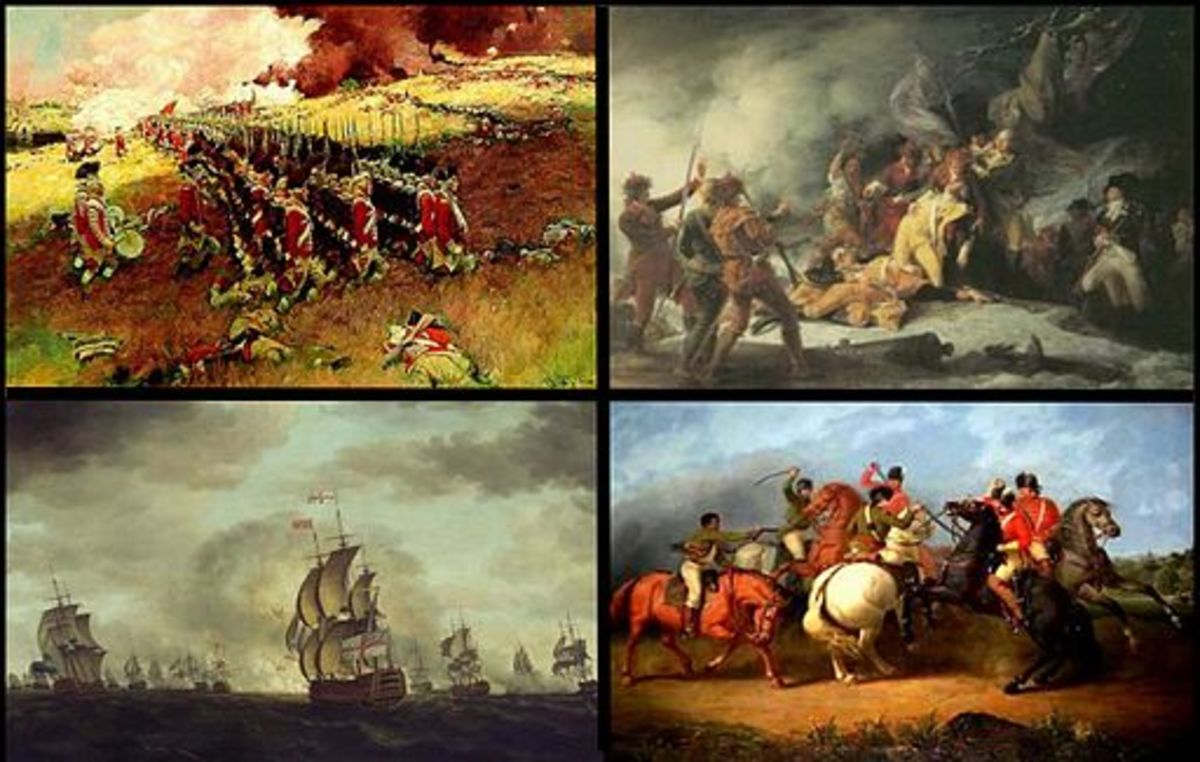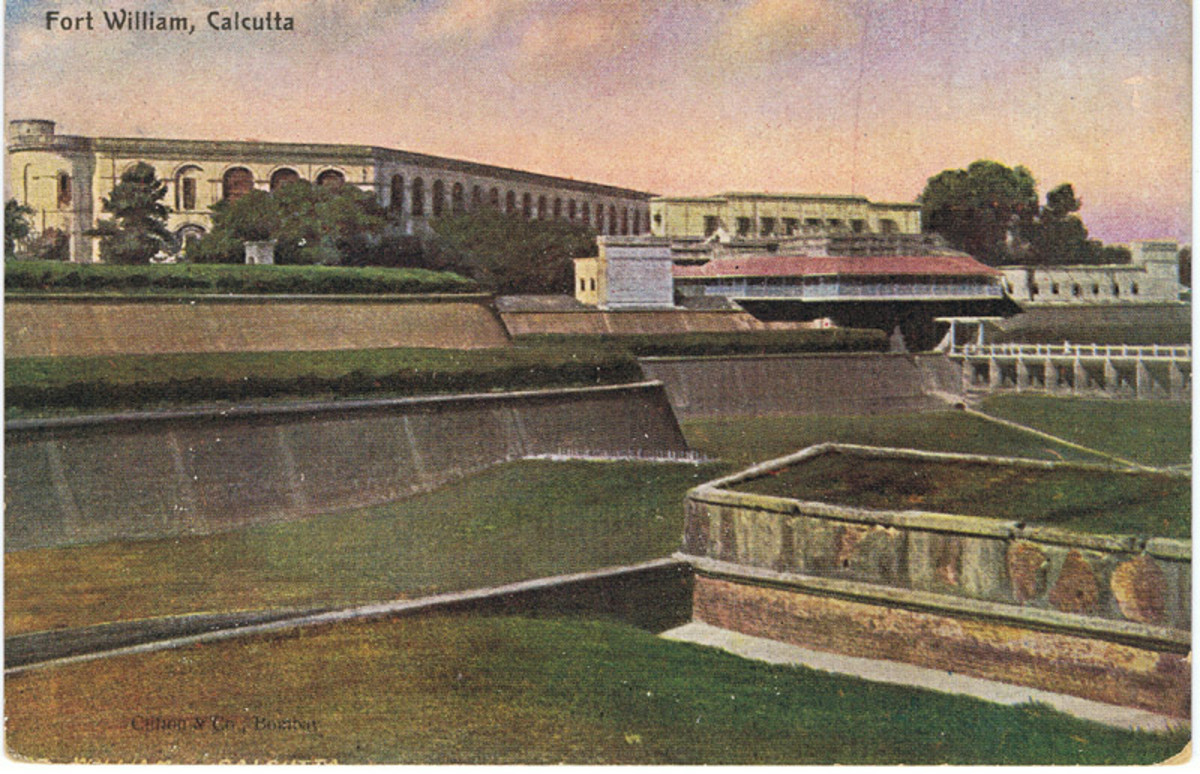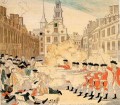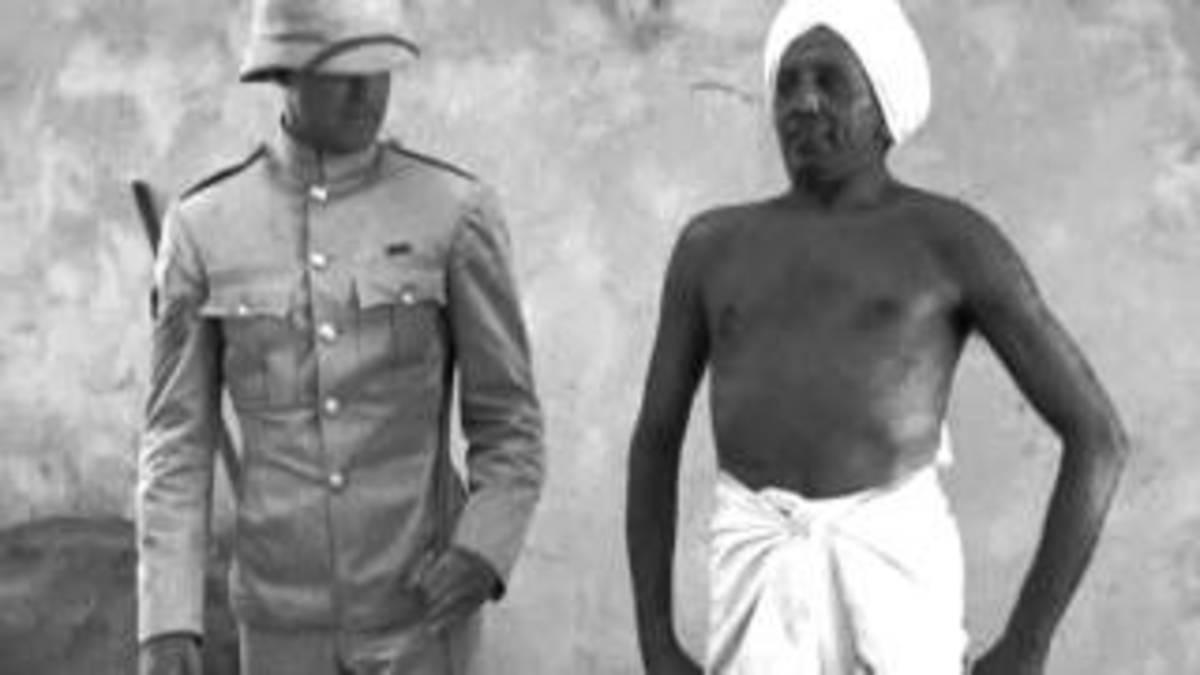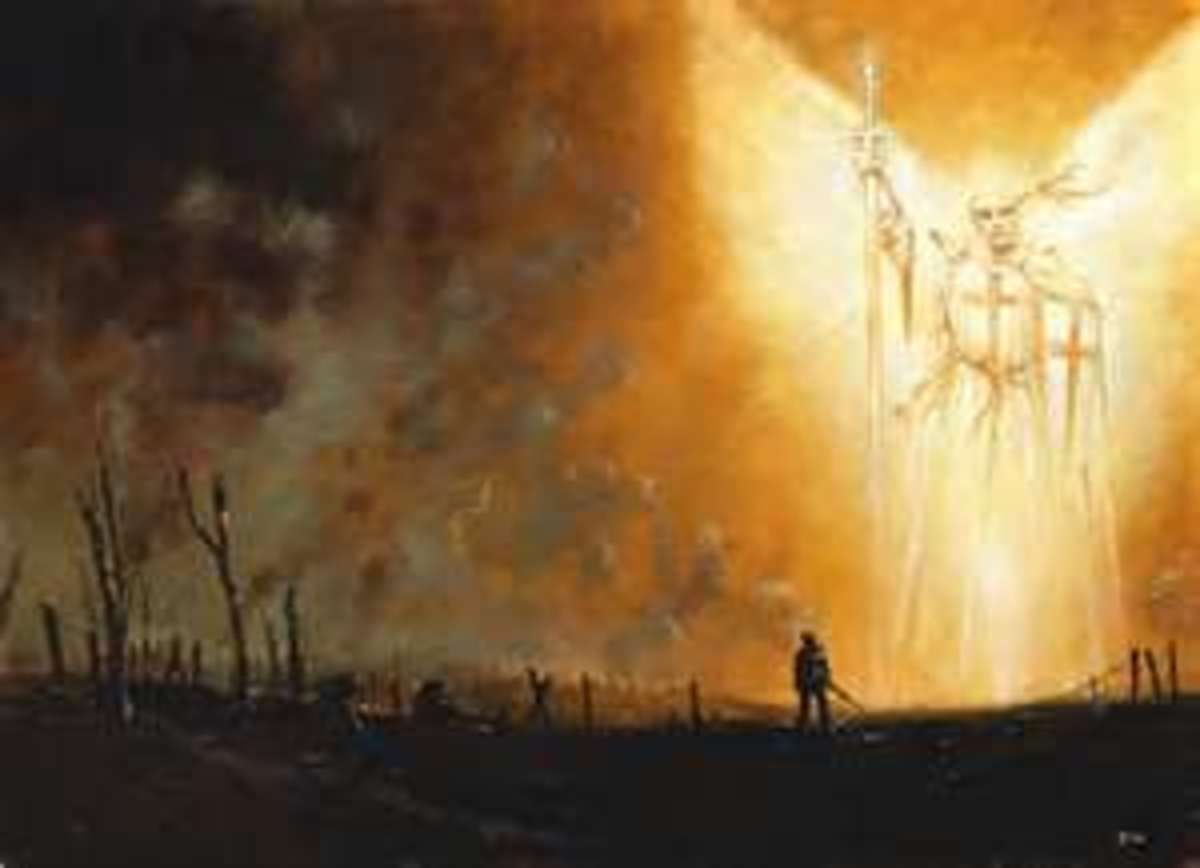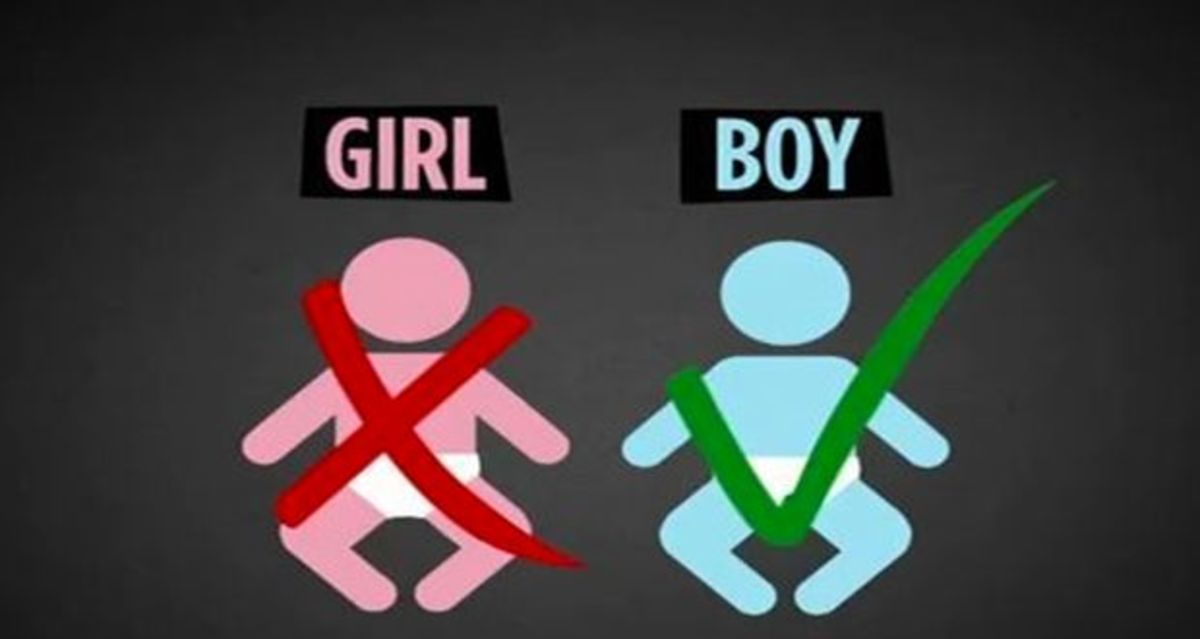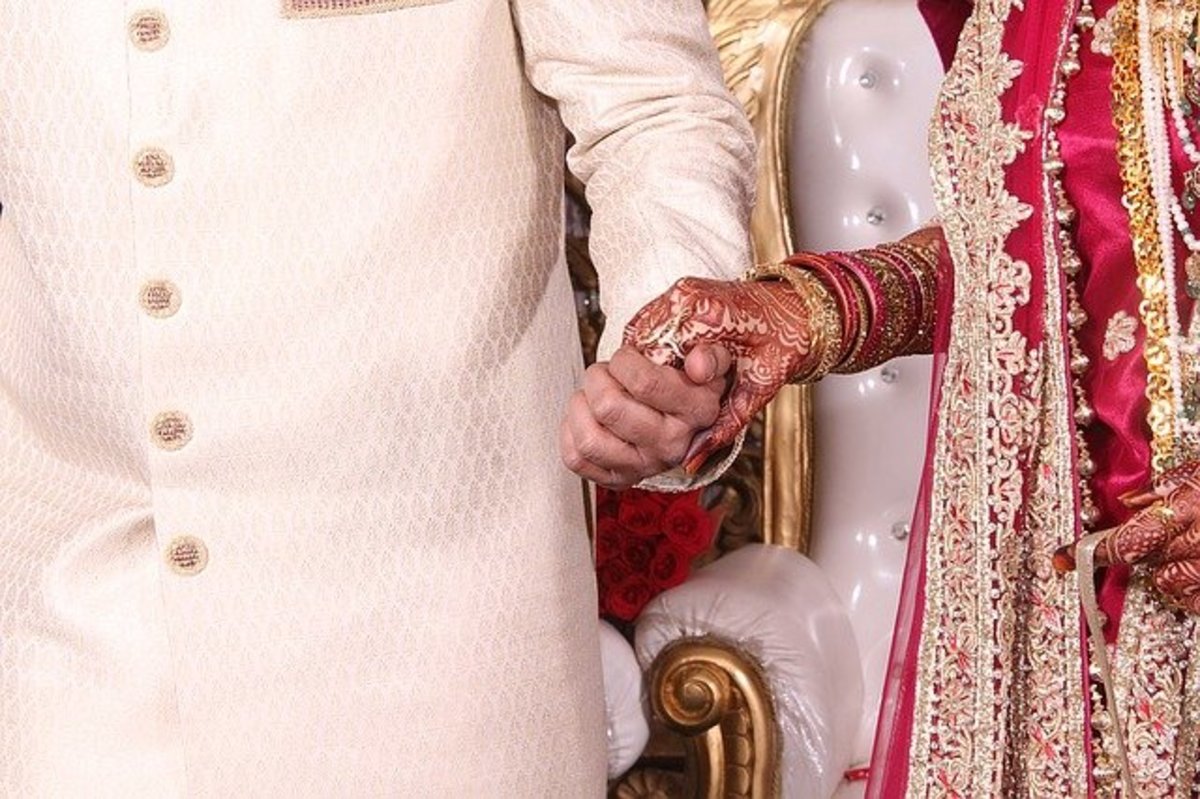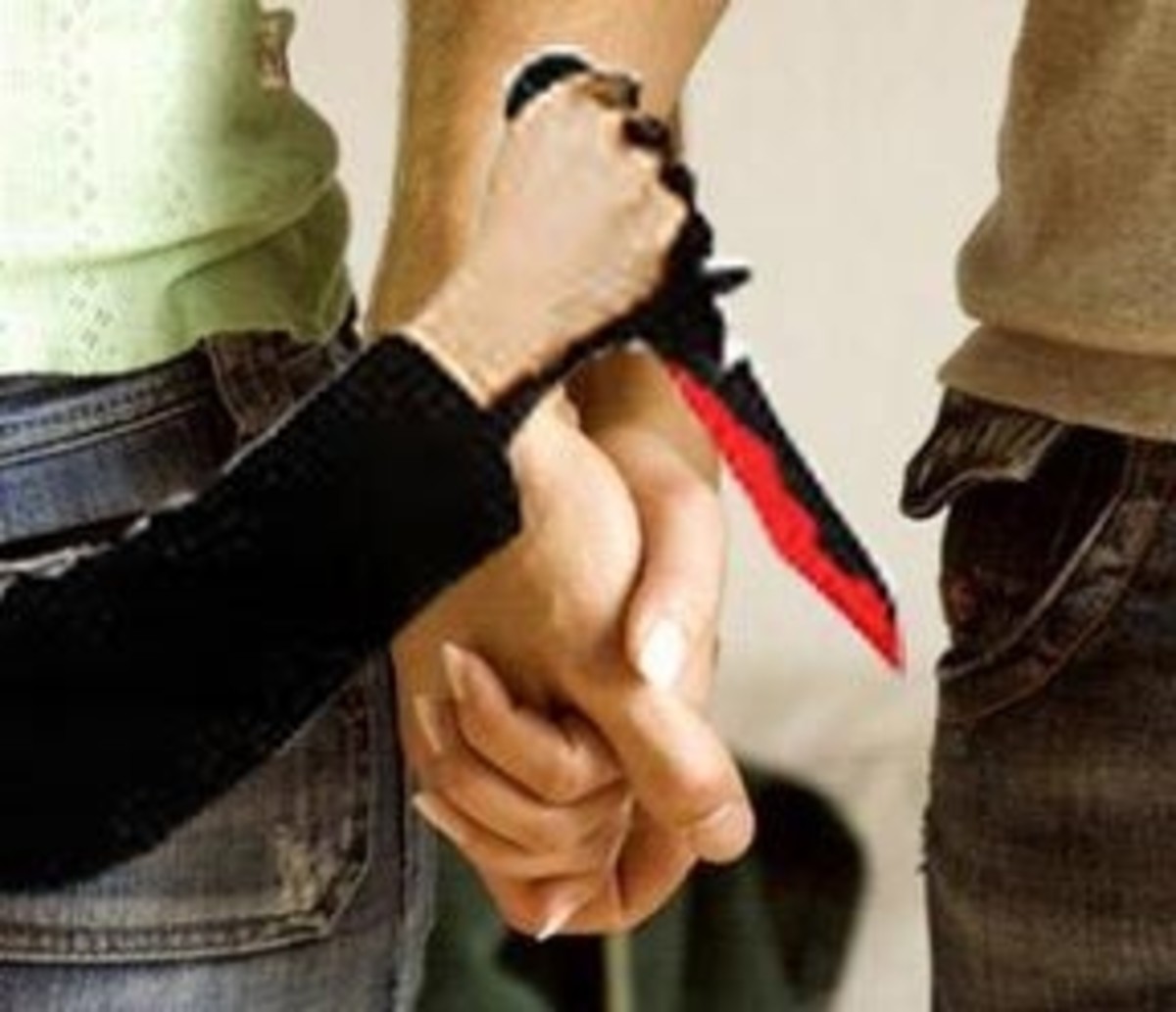Abandon Fort (part 7)
Abandon Fort (part 7)
ABANDON FORT
By
A.D.Sarkar
Ensign Picard was waiting with his men when on June 16th 1756, the nabab's army arrived at the Chitpur bridge. Here they had to stop because the bridge was neither very wide nor strong enough for the commissariat carts, ox-wagons carrying ammunition, heavy cannon and horsemen or elephants to cross.
Mir Madan rode back to the nabab and spoke about the difficulty. “Is there no other way?” asked the nabab still on horseback. “I don't know janab,” came the honest reply.
Unknown to them there was a way. They could go south for about six miles and catch the road to salt lakes and move west. The fort was then about a mile away. There was even a shorter way by entering through somewhere near Halsibagan.
“You think- Rai Durlabh?” whispered the nabab. Mir Madan nodded, but there was not much they could do. They had to be resigned to treachery and hope for the best. The lure of rich reward, not necessarily financial, from Holwell or the mere desire for revenge against a rude and inexperienced ruler must have made Rai Durlabh move the army towards the bridge at Chitpur. Mir Zafar may have agreed or he was too much under the influence of opium to be able to think about anything. The Marhata ditch was a few miles long and it was common knowledge to all for Rai Durlabh not to know this and take the most simple route to the fort and avoid Chitpur bridge.
Suddenly a few cannon balls landed with loud explosive noise in the midst of he nabab's army. The round shots killed a number of men. The shots came from Ensign Picard's position where he positioned himself the night before beyond the bridge. It was not easy to spot his men entrenched behind mounds of earth and large trees.
Rai Durabh immediately ordered a retreat towards the nearby forest and set up a number of cannon in the general direction of the ensign's redoubt. A few rounds of grape were fired quickly killing one of the Company Europeans. Undeterred, the British soldiers charged at the nabab's army which by now was in a state of panic and ran further into the forest for protection. The ensign's field pieces kept on firing and the casualties among the Indian enemy soldiers started to rise.
There was a new General of 2,000 horse on the scene, Khudadad Yar Lutf Khan, who was set up by the banker, Jagat Seth. It was the banker's plan that Khudadad would inherit the throne once the young nabab was disposed of. Khudadad and his sowers, the horsemen, however, were not willing to put their horses in harm's way so Yar Lutf Khan approached Rai Durlabh to push the infantry to tackle the lal paltan. Rai Durlabh obliged and a squad of Rajput infantrymen moved forward to engage in hand to hand combat with the European soldiers who were now inside the forest. Five of the ensign's men died but the loss on the Indian side was disproportionately high. Practically all the Rajputs were annihilated. Mir Zafar ordered a retreat to Dum Dum where the nabab established his headquarters after witnessing the initial battle near Chitpur. The Indian army was duly routed by a handful of British soldiers.
The nabab received a messenger in Dum Dum. He was the most senior employee at Omichand's household in Halsibagan. He was highly excited. With tears in his eyes, baro baboo, as he was called, narrated the whole story of Omichand's humiliation at Governor Drake's hands. He concluded by expressing his master's hope that the nabab would take Calcutta soon and teach these topiwallas a lesson they would not forget.
“You can tell Omichand I have come here personally to ensure that the British are drowned in the Bay of Bengal,” said the nabab, his face twisted in rage. He walked up and down for a while and then asked suddenly, “Have you seen Krisna Das?”
“I have janab” replied baro baboo now much composed. “This Governor Drake has treated him very badly too. He is in jail as well with my master.” Sirajuddaula's face relaxed. It occurred to him that poor Krisna Das did not deserve what he got.
Mir Madan spoke. He asked Omichand's man, “You know Calcutta well, do you not?
“Yes Sir,” replied the man. He cleared his throat nervously.
“Do you know a suitable bridge which will give access to Calcutta for our heavy equipment, horses and elephants?”
The man thought for a while, drank some water from the lota, a small bell metalreceptacle, he was carrying and answered clearly. “Well Sir,” he said. “You are already in Dum Dum. If you go west along that road you will cross a bridge over the Marhata ditch which is wide and strong. Once you cross it you will be in Barobazar in no ime.”
The next day, 17th June 1756, the nabab left Mir Madan and his Pathan horsemen at his camp with the begum and he himself mounted his elephant and marched along the Dum Dum road. Baro baboo guided the army as cannon and camels, horses and infantrymen, French and Eurasian gunners crossed the causeway over the Marhata ditch. The clouds which gathered the evening before helped trap the heat and created a stifling Calcutta. The army marched on regardless and Barobazar became a forest of animals, carriages and human beings. Their mood deteriorated as they passed through the empty, charred black town but the shops and a few houses were full of merchandise and money. Omichand's man guided the nabab towards the east to make his headquarters at Halsibagan while the army looted and then set fire to the shops and houses which were still standing.
The British made Fort William their first line of defence. The second line just missed William Tooke's house, looped around St Anne's church, cut across the Avenue and extended up to the river. The third line of defence passed the east of the Court House, enclosed the Playhouse, the graveyard and Mr Holwell's house.
The morning of June18th 1756, was a Friday, an auspicious day for Muslims, so the nabab decided to give battle. His army poured into Lalbazar and the Indian soldiers decided to occupy the abandoned houses. From there they started shooting through the windows with their matchlocks.
Under the command of Captain David Clayton, the cannon fired at the houses from outside the Court House but they simply damaged the mortar and the nabab's men kept on firing at the British continuously. The captain, fearing the slaughter of his men, took the bulk of the force inside the Court House but the gunners had to be left outside to man the cannon. As one of them fell another came out of the Court House and took his place. The first battle of Laldighi continued in this manner with the nabab's men intact but the British dying like flies. Captain Clayton ran to the guns, spiked some of them ineffectually and marched his handful of men to the fort. The nabab's men came out shouting and captured the guns. The battle stopped at nightfall.
The inhabitants of the fort were hungry. Although there were enough provisions the Indian cooks deserted to the nabab's camp. The women wailed and the children cried. The top men of John Company decided to evacuate them. They were loaded on the boats waiting on the river and the people left behind in the fort watched helplessly as Captain Minchin, William Frankland and Charles Manningham took to the river and rowed away.
A council of war was held. Governor Drake announced, “Gentlemen, never have I seen such an ocean of armed men pitched against a small force such as ours. I have no alternative but to issue the order, 'Abandon fort'. We must evacuate Fort William completely.”
“It is an impossible task,” said Holwell. “With these teeming millions also in the fort, it would take months even if we had enough boats at our disposal.”
Drake said darkly, “We only take the Europeans. The Eurasians and the natives have very little to do with us. They are not our responsibility.”
No one protested but at that moment, by a strange coincidence, a commotion started in the yards. The Eurasian women were in open rebellion. They were angry that only the European women were evacuated. The South River Gate was open. Suddenly without any warning all the Eurasian women, about 150 of them, ran for the boats with their children and started rowing in a chaotic and inefficient manner. The overloaded boats capsized soon after and they all drowned, too exhausted to reach the shore by swimming.
It was four in the morning. Nobody took much notice of the women and children who drowned and the bosses could not come to any decision. Just then a shell burst in the room where the Governor was discussing plans with a few of his men. The third line of defence was long abandoned but the guns at St Anne's Church were active. The nabab's men continued to fire at them from the houses to the north of the church and, as ammunition ran out, the remaining British soldiers retreated to the fort.
Shells continued to pound Fort William causing chaos and confusion while Drake decided to leave with his wife and some of his assistants. He carried with him all his personal wealth valued at around four million pounds sterling. As they rowed their boat to climb aboard the Doddaly, a sentry fired at them from the bank. Drake escaped with a grazed temple only.
The sentry was none other than Strahan. He cursed, “Missed the pig. My God, hope the crocodiles get him.” There were about 40 British soldiers left, the remainder having perished in the first battle of Laldighi. “Did you see,” asked Strahan addressing the soldiers now gathered together on the wharf, “The Governor and the toffs running off? I nearly got the swine.”
Someone said, “If you did less drinking and more shooting may be you will not miss the next time.” The soldiers laughed.
“Now,” said Strahan pointing a finger at the man who made the comment about his drinking, “What kind of a fool are you? What else are there in this life apart from arrack and women?”
“Women!” said the same man. “Oh Aye, you have got a point there.” The men laughed again.
“Now listen,” said Strahan. He felt in an indulgent mood. One has got to laugh in life. Laughing he thought is the tonic for all mental ailments. “Now listen,” he repeated. “What do we do?” He stressed the word 'we' forcibly. The joker in the audience said, “Let us go and join Sir Roger Dowler. He seems to be winning.” He laughed again.
“It is not a laughing matter,” came a reproaching comment from Strahan. He held his clay mini pitcher and extending the arm said, “Anyone fancy a drink?” Then without giving them time to respond he said, “No, I didn't think so” He held the long funnel-like mouth of the pitcher to his lips and took a couple of swigs of arrack.
The enemy was getting impatient. Drums started beating again accompanied by cymbals and horns. The horns were long and made an unbroken hoarse noise. The drums made those rapid single beats booming in chorus but the sound of the horns gave one the feeling of impending doom.
Strahan said, “Gentlemen;” his voice was slurred.
“That's it,” shouted the joker. “We might as well go home. He is off again.” He cupped his palms over his mouth and shouted, “People who can't hold their liquor should drink the water of Laldighi only and nothing else.”
The joker displeased him. An Irishman could drink anybody under the table, he protested. “Listen you English. We are in this mess because of you. I am warning you. Any more of that and I will give you what you deserve.”
“You and whose army?” shouted the joker seriously.
Strahan ignored him. He addressed the soldiers generally. He said, “Gentlemen. We have to do something ourselves.” The soldiers followed him as he entered the fort through the South River Gate and moved south a few yards skirting the Governor's house and then east towards the barracks. For some reason he examined the cell at the southern end of the barracks, possibly, in memory of the times he had been confined there for his misdemeanours by the bosses.
“The noise is a hundred times worse at this end isn't it?” he said and climbed the east gate. He came down again and climbed the rampart and began a running commentary for the soldiers below. “It looks like the Frenchies are firing at us. Wait a minute; there are those half castes as well. I will get them.” He aimed his matchlock and fired a shot. Upon this, a French gunner adjusted the elevation of his cannon and fired. The ball hit the wall below. Strahan fell to the ground inside the fort. He became sober instantly and said to the men, “They are playing a game, those Frenchies.” He fell asleep exhausted. When he woke up the shelling had stopped. The Europeans had a hot cooked meal that evening, cooked by the women who were still in the fort, now calm and collected.
Holwell and some senior members of the Council met. Although not unanimous Holwell was elected as the replacement for Drake as Governor. He immediately decided that the British would fight the nabab's army until sunset and then escape at night.
There was trouble in store as the soldiers were now drinking Madeira and a group of them were drunk. The men refused to fight. The new Governor went to his residence and brought out an open treasure chest. He offered them part of it but they still could not be persuaded to fight.
Captain David Clayton made an appearance. He wished that Ensign Picard was with him now by his side. However, he faced the men with a pistol in each hand. He shouted, “You men, you mind the guns or face the consequences.”
“What do you think you can do?” snapped a soldier.
“I swear. I will kill the lot of you,” shouted Clayton. “Take your choice. Die by my hand like dogs or spend your last hours honourably.”
The men surged forward to overpower the officer. The pistols exploded and two soldiers fell on the ground lifeless. The men looked frightened but they could not think of jumping the captain although his pistols were now empty. As the captain, Holwell and a few other members of the Company council stood in grim apprehension, the men climbed the eastern rampart and the four bastions on the corners of the fort.
In the short twilight of the third Indian month of Asar the houses adjacent to Calcutta were ablaze as the nabab's men set fire to them. As the twilight was totally extinguished by darkness, the moon now stolen by the clouds, the fort reflected the glowing flames on all its three sides. The wind rose again and the clouds in the sky became darker than before.
Most of the European mercenaries fled in the darkness and the British soldiers sought courage from arrack and Madeira, which calmed their nerves and they slept soundly. They woke before dawn, slipped out through the South River Gate and washed themselves in the river. After a hearty breakfast which the women cooked for them they climbed the eastern rampart of the fort. The officers made sure that all the gates to the fort were firmly closed.
By now Khudadad Yar Lutf Khan had positioned his 2,000 cavalrymen on the northern side of the fort. The eastern side was surrounded by infantrymen. Behind them were the French and Eurasian gunners. The men from the fort discharged a rapid volley. Khodadad's horsemen turned and dispersed but the infantry held firm and suffered heavy casualties. Undeterred, they rushed to the south of the fort. The gunners advanced and started firing with deadly accuracy. Bricks and mortar flew in the air as shells burst on the bastions and ramparts. A few Lal Paltan died and a few were wounded, some critically.
Holwell shouted to Captain Clayton, “It is no use. Let the men take shelter inside the fort.” The captain walked to the South River Gate and climbed a ladder to look at the waterfront. Escape now to the waiting ships in the middle of the river was called for, he thought. Considering the small number of people left in the fort about two trips should be sufficient to reach one of the ships. He climbed down and conferred with senior army men. Suddenly a man from the north-western bastion shouted, “Look, look.” Captain Clayton climbed the ladder on the gate. He shook his head. The river now was full of flat bottomed barges with the nabab's soldiers ready to shoot on sight.
Holwell rushed to Omichand, folded his palms and addressed him with courtesy. He said, “I have come to ask you a favour.” Omichand looked surprised and tried to stand up but did not say anything. Holwell was candid. He continued, “What is happening you see. The nabab has surrounded us with a sea of army. There are millions of them. We are traders, not soldiers. We have no wish to fight.”
“You are no match for the nabab you mean.” came a sarcastic reply. “We have been told a lot about your race. You go to far off lands and kill the legitimate inhabitants armed only with sticks and stones or at best with spears and bows and arrows. You fall upon them with rifles and guns from a distance. You become the monarch and the rest of the natives suffer from your diseases to which they have no immunity. You lot disgust me.”
Holwell was taken aback. Omichand's character has made a complete volte face. As long as he could remember, the fat Marwari always rubbed his hands, bowed excessively as much as he could and frequently, whenever he had to do any dealings with the white sahibs. This was a very different Omichand!
Being at least the acting Governor he said, “We need your help. I am asking you to write a letter to Raja Manikchand please.”
“What for?” asked Omichand his brows now wrinkled in disgust.
“Just to tell him that those of us who are left in the fort do not wish to fight,” pleaded Holwell. “We shall surrender unconditionally. All of us will even pack our bags and leave India never to come back if that is what the suba wants.”
“Ah!” exclaimed Omichand. “I am to be beaten with a slipper by a low caste Hindu. I am to be thrown into an unclean cell like a common criminal. I am not even allowed a cook to prepare my meals. I am prevented from bathing in Mother Ganga. And now you expect me to write letters for you. I hope the nabab destroys the lot of you”
“A great injustice has been done,” said Holwell. He turned to Krisna Das and repeated himself. Krisna Das turned his head away and continued his sullen posture.
“They are not the lions after all!” said Omichand turning to Krisna Das.
“They are jackals,” spoke Krisna Das at last.
Omichand laughed; a contagious laughter which made Krisna Das beam with a smile. Holwell smiled embarrassingly. He was thinking. He had a letter in his pocket for General Rai Durlabh. A pact was made with him when the Indian army marched to Calcutta. The General promised that Holwell would be able to abscond provided the bribe to him personally was substantial. Holwell would do well to agree to a very large sum because the British did not stand a chance of winning against the military machine the nabab had mounted; not the nabab really but Mir Madan, Mohan Lal and Monsieur Jean Law. Holwell wrote the letter which he kept hidden in his pocket which was a reminder to Rai Durlabh doubling the amount of bribe but now Holwell was sure that it would be imprudent to send any letter that may incriminate him by Omichand. He was a wily native after all, prone to dissembling, treachery and back stabbing. He was in a quandary. He wished that bright young William Tooke was here but the fellow absconded soon after Drake. An idea came to him. He said to Omichand, “Do you know I am the Governor now?”
“How?” came the unexpected query from the Marwari merchant.
“Well, I'll tell you what happened. That Drake was a coward and totally self-centred. At the first sign of trouble he took off with the money. We did not stop him. None of us were happy with him you see. I can tell you this. If I knew what he did to you, there would have been a rebellion. You, Sir, are a very respected citizen of Calcutta. You are wealthy, generous and religious. How could a sane person do anything to offend you!”
The current Governor's grovelling had the desired effect. A British Governor calling him 'Sir'! He took an unobtrusive glance at Krisna Das to make sure that the young man heard His Excellency, the Governor of Fort William.
Holwell broke the silence. He said, “Drake is in disgrace for ever. It will be a few months but the Company directors in London will hear about him abandoning fort and running off with the money. I will not be surprised if the money from him is recovered and he ends up a pauper. He won't even have the wherewithal to pay his fare to book his passage home to England. He hates India and the Indians. Where would he go? What would he do for a living?”
Holwell paused a while to make sure that his victim was truly under his control. Satisfied, he said, “Of course there is no question of you being confined in a cell. I know this is not a cell. You are in the Writers building supposedly under house arrest. Nevertheless, a sophisticated, wealthy man of your calibre accustomed to fine things in life, this must be like a cell to you. As I was saying, as soon as it is safe, I am going to arrange for you to be taken to Halsibagan so that you can live in a style you are accustomed to.”
Omichand was not told that the dissolute youth, nabab Sirajuddaula had occupied his house and made it his headquarters. Holwell just said sincerely,”I am sorry.”
Omichand had a lump in his throat. His eyes went misty as he recalled the dark thoughts he nurtured about the British. He even approached Mahavir, the late Tirthankar, of the Jains, the leading guru, to destroy the British, a very unwelcome thought for one whose creed was non-violence to all living creatures.
“I am sorry for what has been done to you,” repeated Holwell.
“Oh no,” came the reply. “It is all right. The British have always been good to me. It was that monster Drake who put me through all this. I am happy that he is nobody now. That is justice what the British always emphasise.”
“Shall I arrange for you to be taken out of here?” asked Holwell.
Omichand declined the offer. He was a shrewd man and had already worked out that if the nabab saw him in this position of humiliation at the hands of the topiwallas, he was unlikely to suspect him of conspiring against him with the British. Judging by the unceasing booming cannon and what Holwell said the British were finished. On the other hand he knew that the sahibs were not easily put down, so he must placate them too.
“Tell me what you want me to write,” asked Omichand.
The guns stopped for a while as the nabab's army became busy with the midday meal followed by a siesta, but around three that afternoon of June 20th 1756 hundreds of Indian infantrymen got ready to scale the walls of Fort William. The British made a vain attempt to stop them when Holwell was told that a high ranking officer of the Indian army was giving some sort of a signal. As Holwell ran to the north-eastern bastion he heard the officer shouting, “Don't get killed. Surrender.” At this Holwell raised the white flag and the nabab's men ceased their activity immediately.
Holwell left the bastion and his men gathered opposite the barracks now quite exhausted. Suddenly a huge explosion shook the fort. The men saw, once the smoke cleared, that someone had planted explosives to shatter the South River Gate. The Indian army poured in through the hole unhindered. Holwell looked hopefully for Rai Durlabh to enter but only a junior officer came forward. He said, “The battle is over. Surrender.”
Holwell came forward, unbuckled his sword and laid it down in front of him. The few officers who were left, followed thus bringing a formal end to the second battle of Laldighi. The nabab appeared soon after in a palanquin. As he stood on the ground, Holwell came forward bowing with his palms moving towards his face as a mode of saluting the royal personage. The nabab raised his hand mechanically to acknowledge Holwell and then walked around and looked at the devastation. He wanted to see Drake but when informed truthfully by Holwell that he had fled, the nabab exclaimed, “That Drake of yours is an utter fool. It is because of him that such a beautiful city is ruined. I am sorry.”
Sirajuddaula detained Holwell, writers, captains of the army and council members, about 50 in all. The rest of the sahibs were set free who left the fort and moved about as they pleased. The nabab was happy with Omichand and Krisna Das. They were both rewarded with robes of honour. Sirajuddaula camped by the fort.
The following morning Holwell was summoned. He looked bedraggled and gaunt but approached the ruler with moving arms and slumped on the floor without seeking permission. The nabab pointed to a large ledger which was lying on the floor and asked Holwell to be lifted and seated on it.
He bent forward and asked, “Are you ill? Have you eaten?.” He ordered for drinking water which he himself gave to Holwell gently. Holwell did not touch the food which was brought to him quickly but he drank heartily. He did salam and spoke faintly. “Your excellency, a terrible crime has been committed by your men. The nabab listened without interrupting Holwell once. He was told that his guards threw 146 Europeans including one woman in a small room the previous night and locked it from outside. The room was very small about 18 feet by 15 feet. There was only one small window with iron bars. Some 123 of them died of suffocation. When Holwell finished, the nabab asked, “Where is all the treasure? Hand it over.”
“We have none,” replied Holwell faintly. He was telling the truth because the fort was searched thoroughly by the Indians. Sirajuddaula became violently angry. He said he knew the British. They were deceitful by nature. They cheated his trusting grandfather with lies and now they were trying to deprive him of the treasury. He ordered Holwell and another Company officer to be chained. He shouted “I want the fort to be demolished right away. The men did as much as they could because the building was too strong for them.
The name of Calcutta was changed to Alinagar and it was decided to build a mosque. The nabab gave a decree that if any Britisher was found in Bengal, he will lose his nose and ears and will be sold as a slave.
After causing a lot of damage to the city of Calcutta, on the morning of June 24th 1756, the huge army started their return journey. There were Mir Zafar and Rai Durlabh, Mir Madan and Khudadad Yar Lutf Khan of 2,000 horse, the nabab and the begum with their two-year-old daughter. The elephants sauntered, the horses trotted and the camp followers tagged on. The army crossed the river at Baranagar then, for no reason at all, the suba sacked the French factory at Chandernagore and the Dutch one at Chinsura. They moved on; past Niaserai, Patli, and Catwa. They left Palashi grove, Palashi house and followed the loops of the river to reach Daudpur. The victorious ruler of Bengal, Bihar and Orissa moved further north and arrived at Murshidabad, the capital, on July 11th 1756.
In the meantime the surviving British soldiers and civilians sailed in the southerly direction and made their escape to Fulta; not the luxurious city of Calcutta but a malarial swamp, miserable and inhospitable.
Nobody remembered the native women and children of the British soldiers.
----------------------------------------------

